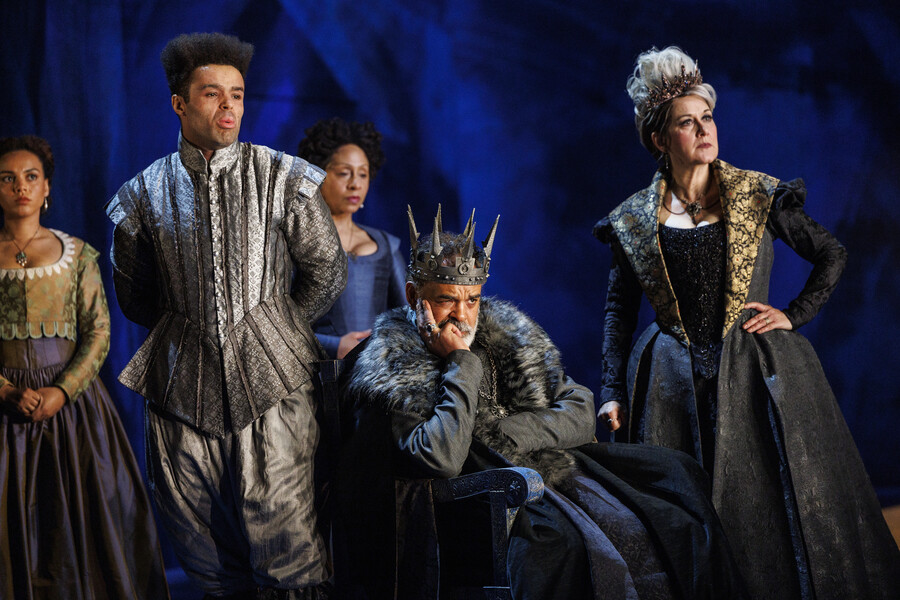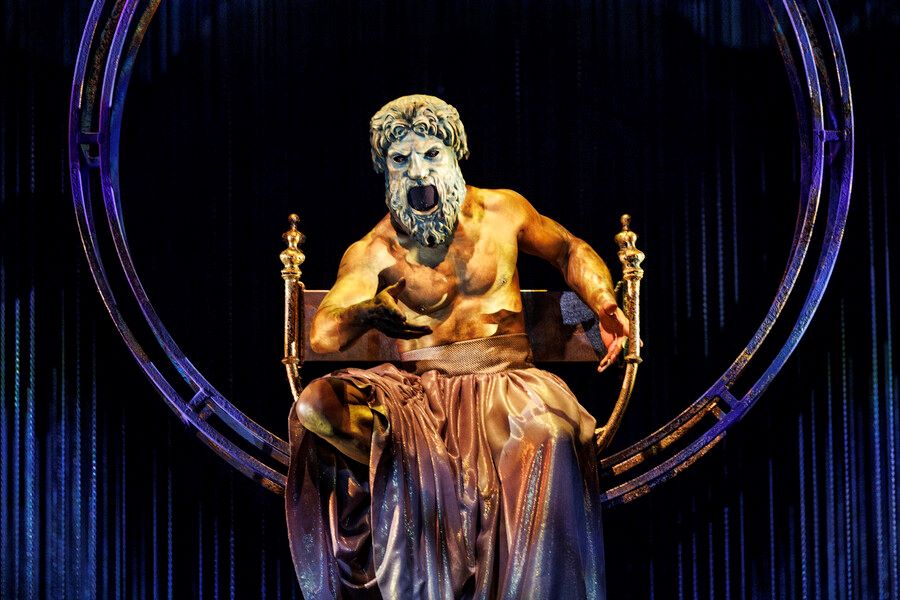
22 April – 27 May
In this, one of his last plays, Shakespeare is flexing his powers, cocking a snook at the classical unities and saying, ‘look what I can do!’, and throwing the doors open to the possibilities of theatre. What in more credulous times was considered remarkable, literally wonder-full, are to a modern audience a litany of risible improbabilities, and to his credit Gregory Doran doesn’t try to convince us they are anything other. In this production Mr Doran (in his swansong at the RSC?) has joined forces with Shakespeare to show the breadth of what theatre can accommodate in a single play.
In Othello it is a dropped handkerchief, in Cymbeline a stolen bracelet – on such trifles can tragedy turn. And in this dark, buttock clenching tragic-comedy in which a cross-dressing princess cuddles up to a headless corpse, stolen princes immediately love their (as yet unrevealed) sister, where a Lothario creeps from a trunk in order to compromise a sleeping princess, battles are fought, spirits appear and a god descends – why shouldn’t a shaman decode the riddle of a magical text?
Some of Shakespeare’s favourite themes are that of identity and the role of nature verses nurture; the contrasts between court and country; and they are here played out in a seemingly impossible set of circumstances which need to be resolved before the final curtain, and which indeed are heading for that moment when Shakespeare pulls all the threads together with a concluding flourish.
It is with those happy resolutions that the veils of ignorance drop and characters’ true identities are revealed to all – including themselves and in particular a chastened king Cymbeline (Peter de Jersey). It is Mr Doran’s skill in not allowing any of the goings on to descend into bathos or burlesque. Not until the Agatha Christie-like denoument in which all is explained does he allow us to laugh at what has gone before.
Iachimo (Jamie Wilkes) is a pushy and sarcastic lounge lizard, an opportunist who has been corrupted by a life of privilege. The villain of the piece is the Queen (Alexandra Gilbreath) who one suspects of being prepared to do anything to bring about her plan to have her son, the swaggering ninny, Cloten (a suitably bumptious Conor Glean) accede to the throne.
The stylized battle between the Romans and the British uses tableaux, a device Mr Doran employs at the top of the play where the First and Second Lady introduce us to the characters in the play. The storytelling element is carried on throughout with much of the dialogue delivered directly to the audience. Language is all. Similarly the characters of the young and inexperienced lovers, Imogen and Posthumus (Amber James and Ed Sayer) use the language of devotion to generate emotion, rather than, were they more mature, using language to express what is inside.
The complex mix of improbable situations, tied up in an impending war with the pre-eminent empire of the day, is resolved by the spectacular deus ex machina of Jupiter (voiced by Patrick Stewart) who has the necessary authority to bring a sensible peace back to a troubled kingdom.
Stephen Brimson Lewis’ sparse set gives a recognizably pagan feel to Britain and Paul Englishby’s musical settings add drive and atmosphere.
★★★★☆ Graham Wyles 4 May 2023
photos by Ellie Kurttz (c) RSC


